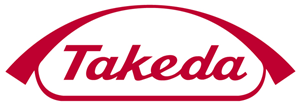Oyster recall affects 23 states
Fast Facts
• The U.S. Food and Drug Administration is warning consumers not to eat raw oysters harvested from an area of Hood Canal in Washington State following an outbreak of illness in that state caused by Vibrio parahaemolyticus bacteria.
• Raw oysters harvested from “growing area 4” in Hood Canal from August 30 to September 19 have been linked to three confirmed and two possible cases of Vibrio parahaemolyticus illness.
• All ill persons reported consumption of raw oysters.
• There have been no reports of hospitalizations or deaths resulting from consuming the oysters.
• The Washington State Department of Health has closed the growing area associated with the illnesses. Commercial oyster harvesters and dealers who obtained oysters from this growing area have initiated a recall and notified their commercial customers in affected states of the recall.
• Shipping and other records provided by Washington State indicate that oysters harvested from this area were distributed to establishments in 23 states and four foreign countries. Washington State authorities have notified those states involved of the recall.
• Those who have recently purchased oysters should check with the place of purchase and ask if they were harvested from the affected growing area.
What is the problem?
Raw oysters harvested and shipped from Hood Canal Area 4 in Washington State between August 30 and September 19 have been linked to illnesses caused by Vibrio parahaemolyticus bacteria.
What are the symptoms of Vibrio illness?
Illness is typically characterized by nausea, vomiting, and diarrhea. The symptoms begin from a few hours up to five days after consumption of raw or undercooked seafood, particularly shellfish, or after ingestion of surface waters.
Who is at risk?
Persons at risk are those who traveled to Washington State and consumed oysters that were harvested from Hood Canal Area 4 or who purchased oysters in a state to which these oysters were distributed and ate them. Individuals with weakened immune systems, including people affected by AIDS, chronic alcohol abuse, liver, stomach, or blood disorders, cancer, diabetes, or kidney disease can be more susceptible to vibrio illness and should avoid eating raw oysters, regardless of where they are harvested.
What Do Consumers Need To Do?
Consumers in the affected states should inquire of the retailer, restaurant, or other facility about the source of the oysters offered for purchase. If the oysters were definitely or possibly harvested from Hood Canal Area 4 in Washington State, and have not yet been consumed, they should not be eaten. If the oysters were already consumed and no one became ill, no action is needed. If you develop a diarrheal illness within a week after consuming raw or undercooked shellfish, see your healthcare provider and inform the provider about this exposure.
Where Were the Oysters Distributed?
Records obtained by Washington State health officials indicate that raw oysters from this area of the Hood Canal in Washington State were distributed to 23 states: Alaska, Arizona, California, Colorado, Connecticut, Florida, Hawaii, Illinois, Indiana, Maryland, Minnesota, Mississippi, Missouri, New Jersey, New York, North Carolina, Ohio, Oregon, Pennsylvania, Texas, Virginia, Utah, and Washington. Oysters from this area were also distributed internationally to the People’s Republic of China, Indonesia, Thailand and Taiwan.
What is Being Done about the Problem?
The Washington State Department of Health has closed Area 4 of Hood Canal to shellfish harvesting. All product harvested and shipped between August 30 and September 19 has been recalled. Washington State has notified all other states where product was shipped that they should hold and destroy product.
Who Should be Contacted?
The FDA encourages consumers with questions about seafood safety to call 1-888-SAFEFOOD
Source: FDA
 The U.S. Food and Drug Administration today approved Edarbi tablets (azilsartan medoxomil) to treat high blood pressure (hypertension) in adults.
The U.S. Food and Drug Administration today approved Edarbi tablets (azilsartan medoxomil) to treat high blood pressure (hypertension) in adults.